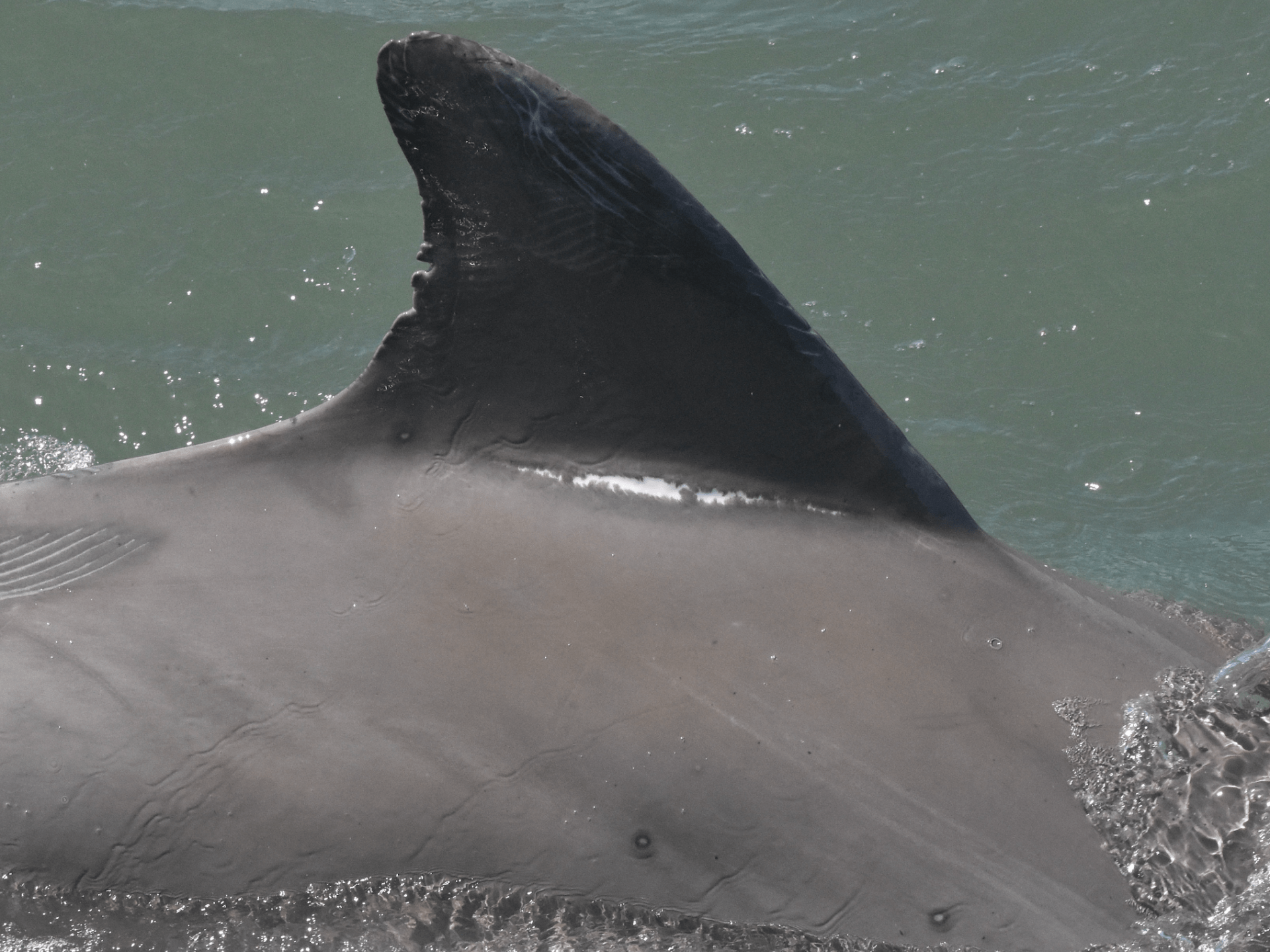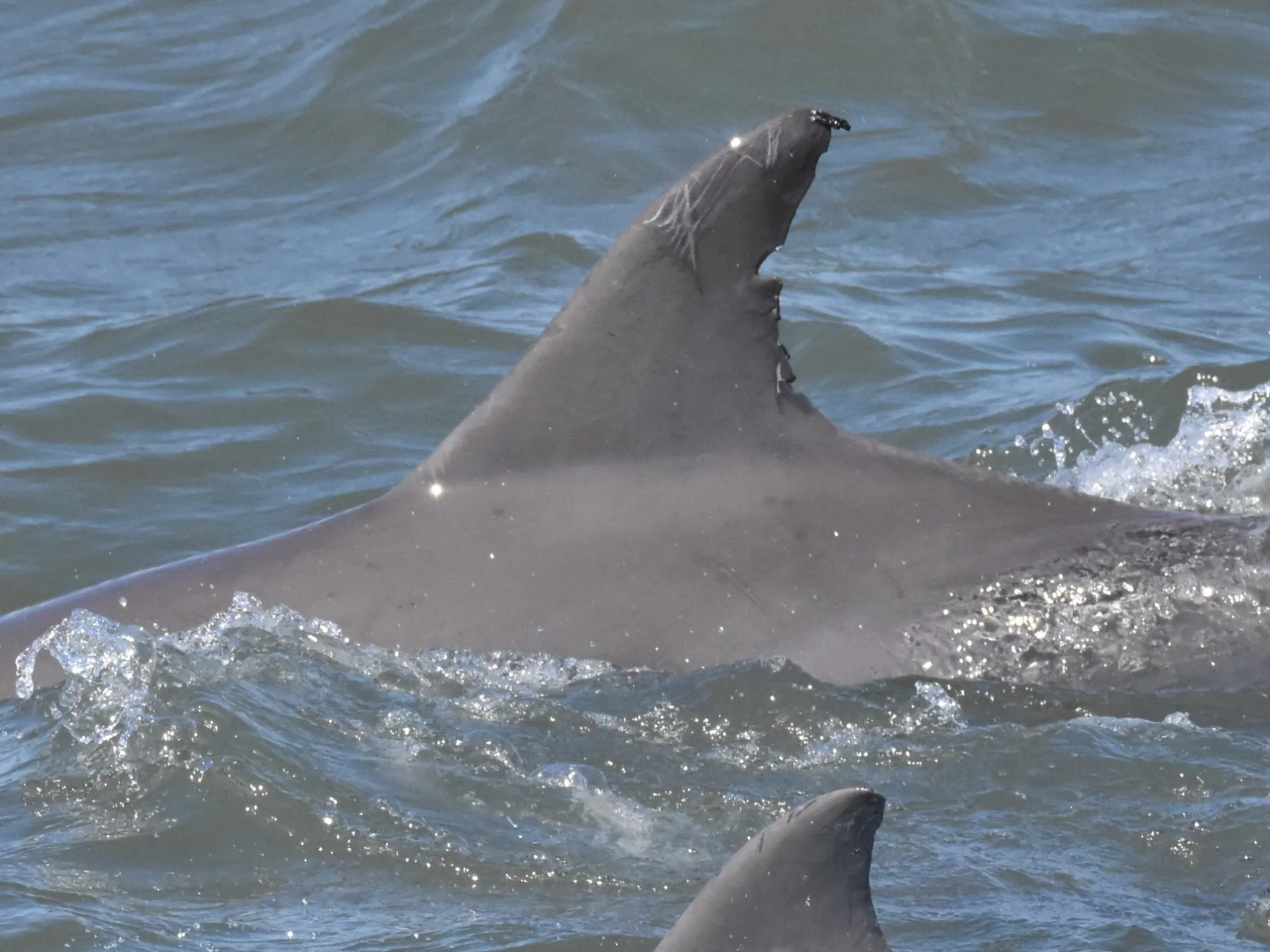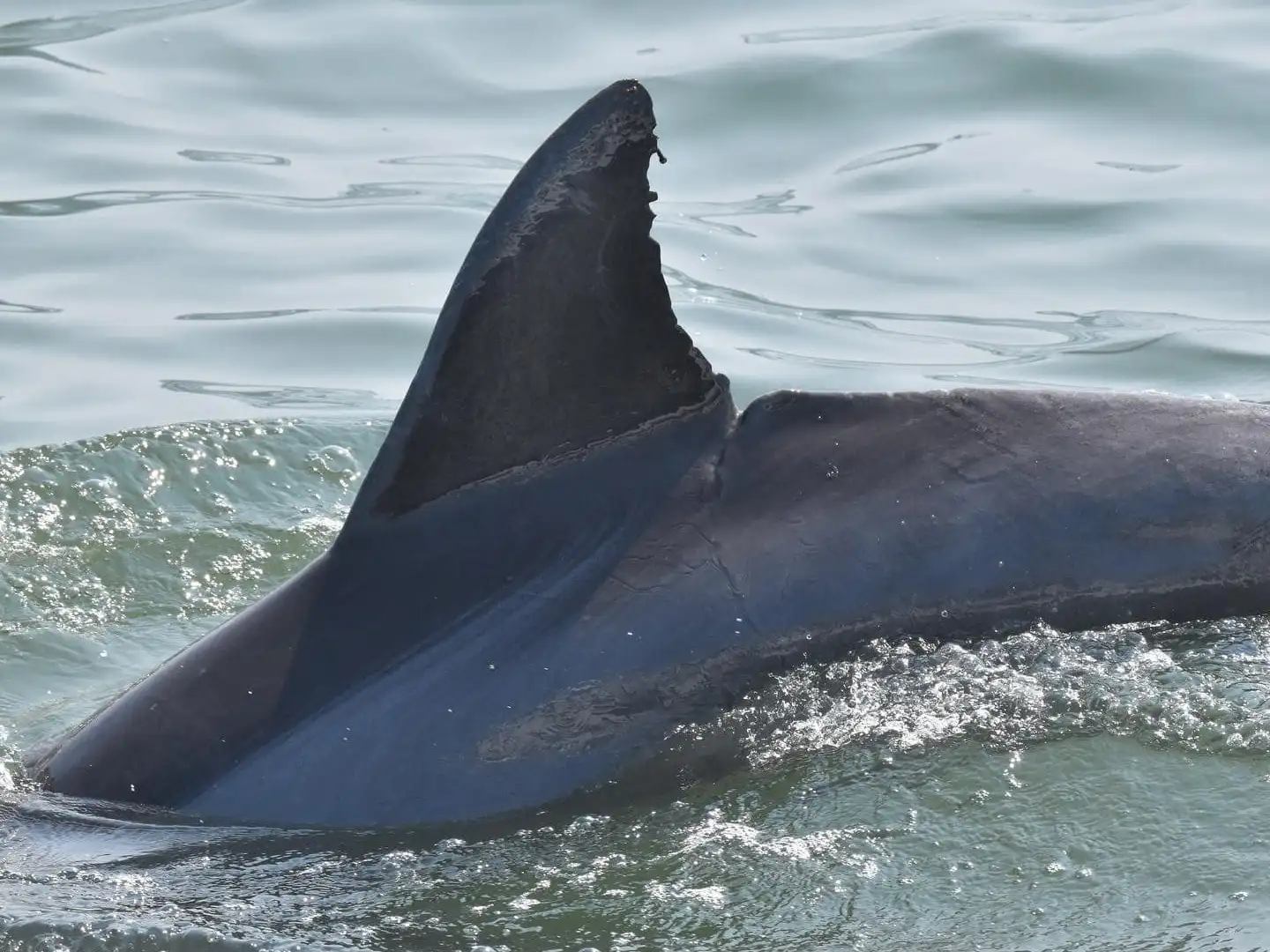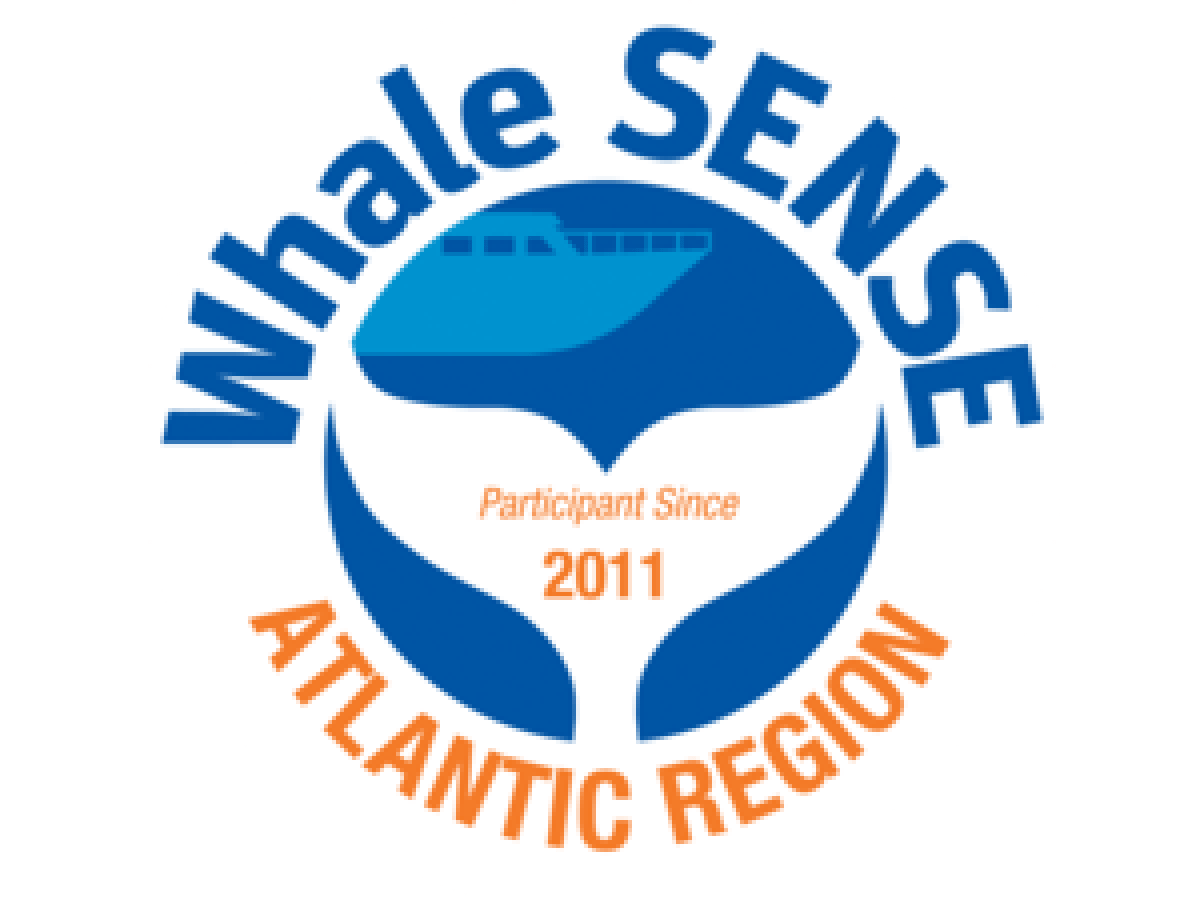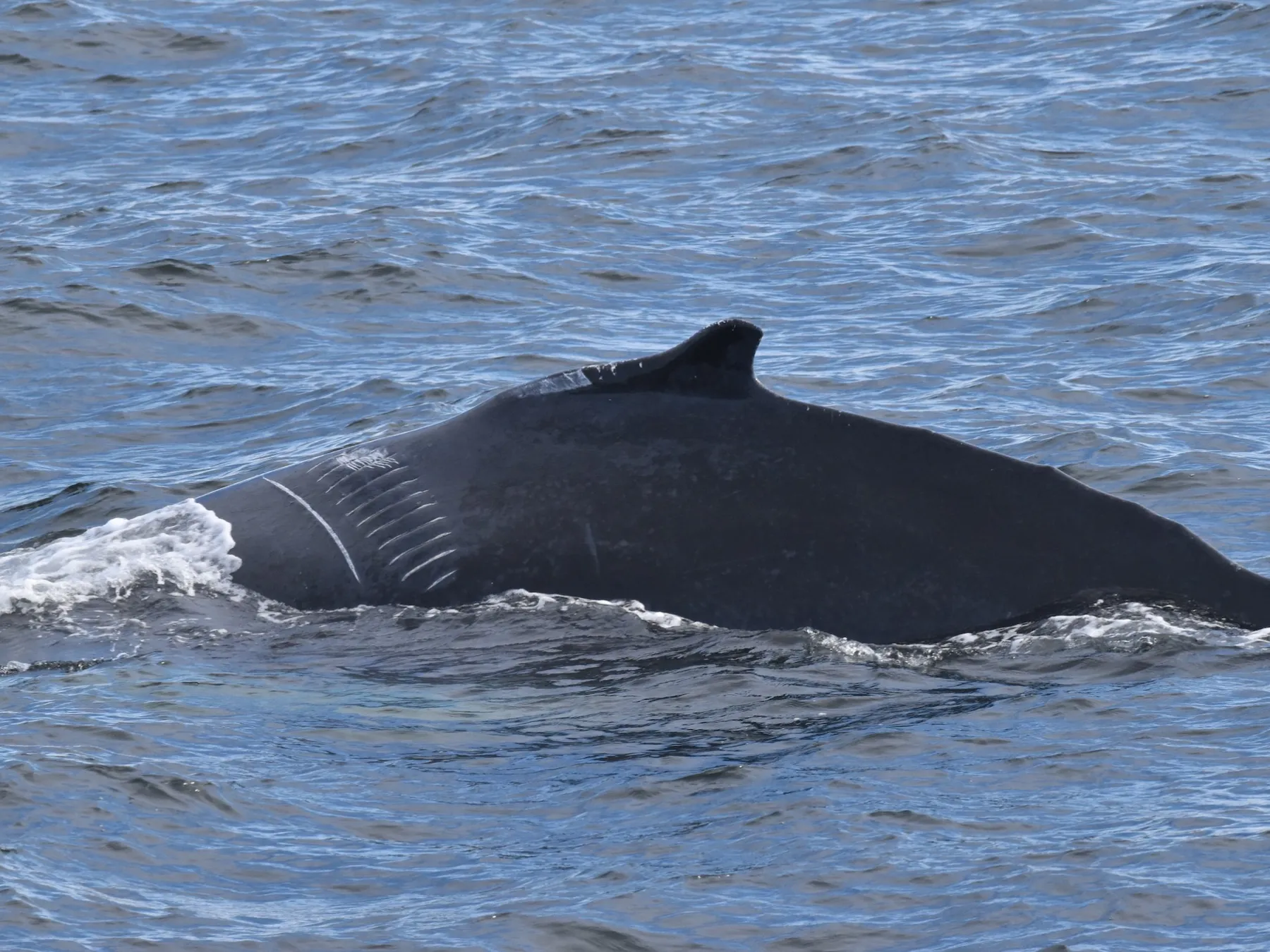Cape May Marine Mammal Research Center Is a 501(c)(3) Non-profit
To expand our research onboard, we founded the Cape May Marine Mammal Research Center in 2016 (Originally named the Whale and Dolphin Research Center of Cape May). Our mission is to promote the conservation of our marine mammals and their environment in Cape May, New Jersey through research, education, and outreach.
Photo-identification has furthered our knowledge of the seasonal migration, distribution, and abundance of both Bottlenose dolphins and Humpback whales off New Jersey. Bottlenose dolphins are individually identified by their dorsal fin and Humpback Whales are identified by the underside of their fluke fin, occasionally accompanied by a unique dorsal fin. In addition to photographs and GPS coordinates, our team is constantly recording data for weather and sea conditions, behaviors, group sizes, the presence of neonates, associations, surface intervals, and other specific case studies. In addition to collecting data on the American Star over 200 days of the year, we also conduct dedicated research surveys under a NOAA permit for Bottlenose dolphins.
Since 2011, we have documented over 500 distinct individuals in our Cape May inshore coastal (Tamanend’s) Bottlenose Dolphin catalog – and it’s always growing! Our catalog contributes to a larger database based out of Duke University and OBIS-SEAMAP, the Mid-Atlantic Bottlenose Dolphin Catalog. The MABDC is a long-term collaborative effort to gain a greater understanding of the stock structure and migration patterns of coastal dolphins in the Atlantic. The Northern Migratory stock utilizes New Jersey seasonally as their feeding, mating and nursery ground. They can travel as far North as New York in the summer months and as far South as North Carolina in the winter months.
From 2011-2023, we have documented over 230 individual Humpback Whales in our Humpback whale catalog. Humpback Whales are observed off New Jersey year round, even including our winter months! We have seen a notable increase in the presence of Humpback Whales close to shore. Humpback Whales utilize New Jersey as their feeding ground, specifically preying upon Atlantic Menhaden, a small oily bait fish also referred to as Bunker. Humpback Whales can travel as far North as New England and Newfoundland in the summer months and as far South as the Dominican Republic in the winter months for mating and birthing. Our research contributes to a larger effort, the Mid-Atlantic Humpback Whale Catalog. Photo: Humpback Whale – Mn0001 (ALTID: NJ1101)
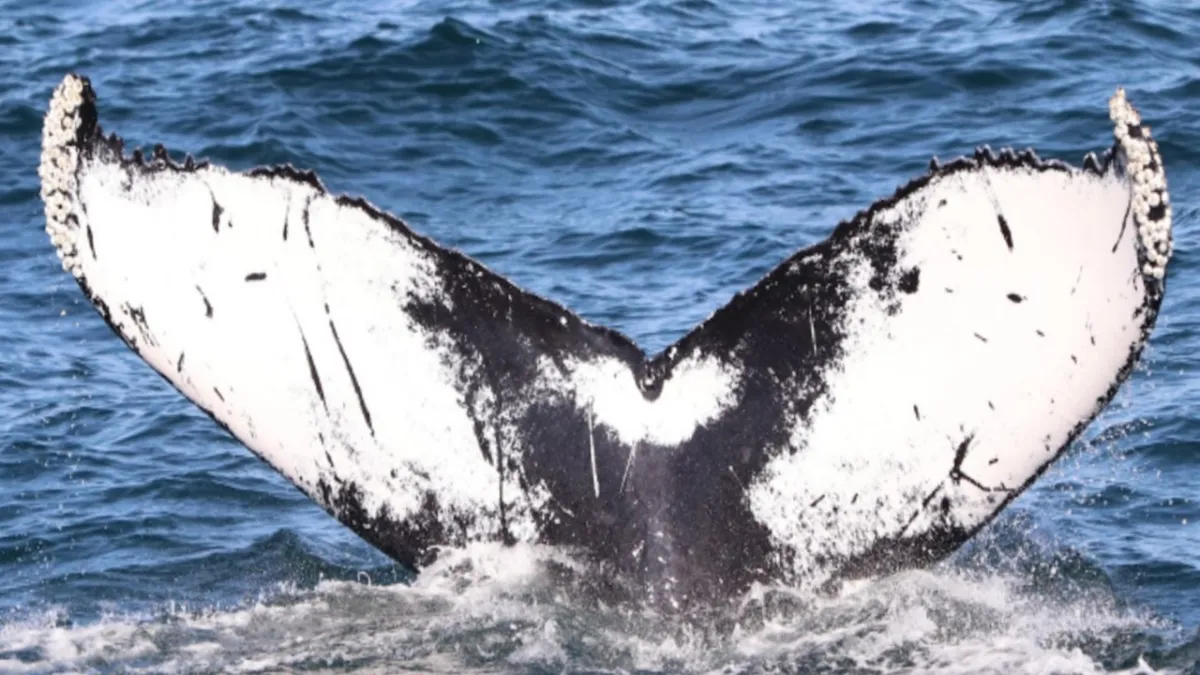
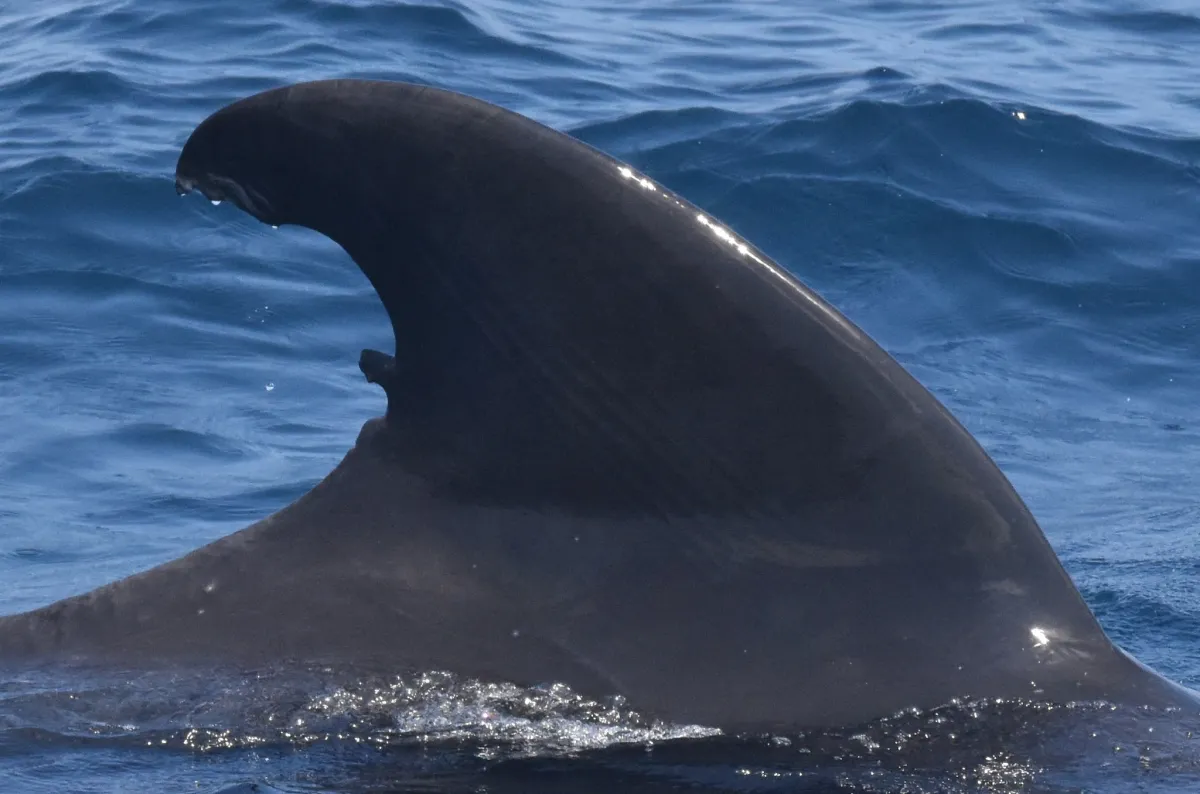
In addition to our coastal catalogs, we have also created pelagic catalogs with our offshore species observed on our 12hr and 24hr pelagic trips including Short-finned Pilot Whales, Risso’s Dolphins, Common Dolphins, and Spotted Dolphins. Photo: Short-finned Pilot Whale dorsal fin
Vessel strikes and entanglement are two top fatalities for baleen whale species in the Atlantic. In New Jersey and all United States coastal waters, marine mammals are protected under the Marine Mammal Protection Act of 1972 that makes it illegal to hunt, harm, harass, feed or swim with any species. Additional species are also protected under the Endangered Species Act. The Cape May Whale Watch and Research Center is a part of a voluntary program, Whale SENSE, that trains all of our captains, naturalists and interns on the proper and respectful viewing techniques of marine mammals in the wild. We set the example by following all rules and regulations set forth by NOAA Fisheries Services and spread the message to recreational vessels. We believe this is extremely important and fully understand we are the visitors to their natural habitat. We always give our marine mammals the utmost courtesy and respect they deserve.
We are thankful for the support from our passengers, community and partnerships with many great local organizations, including the new Cape May Point Science Center.
Click here to make a tax deductible donation to support our research program!


